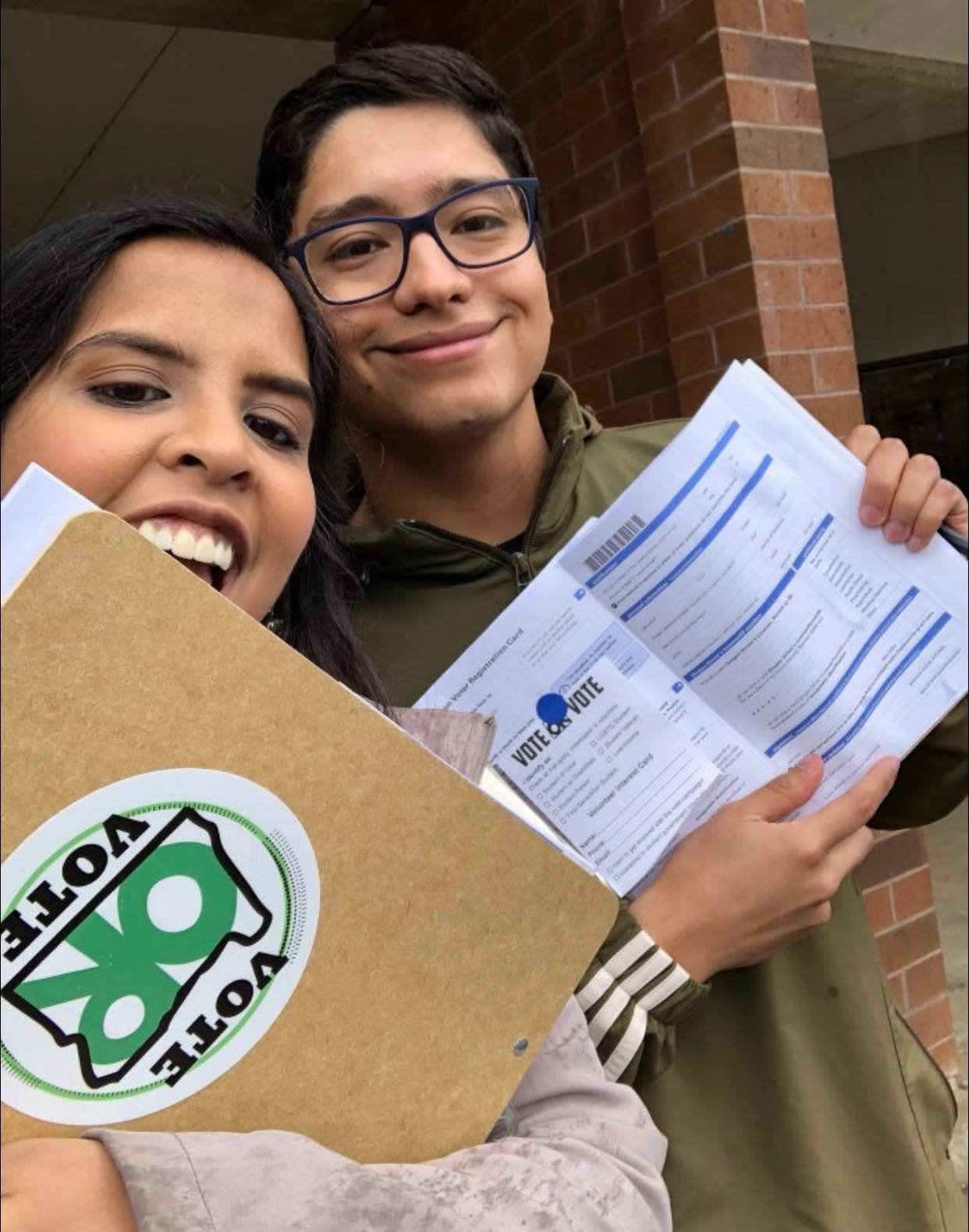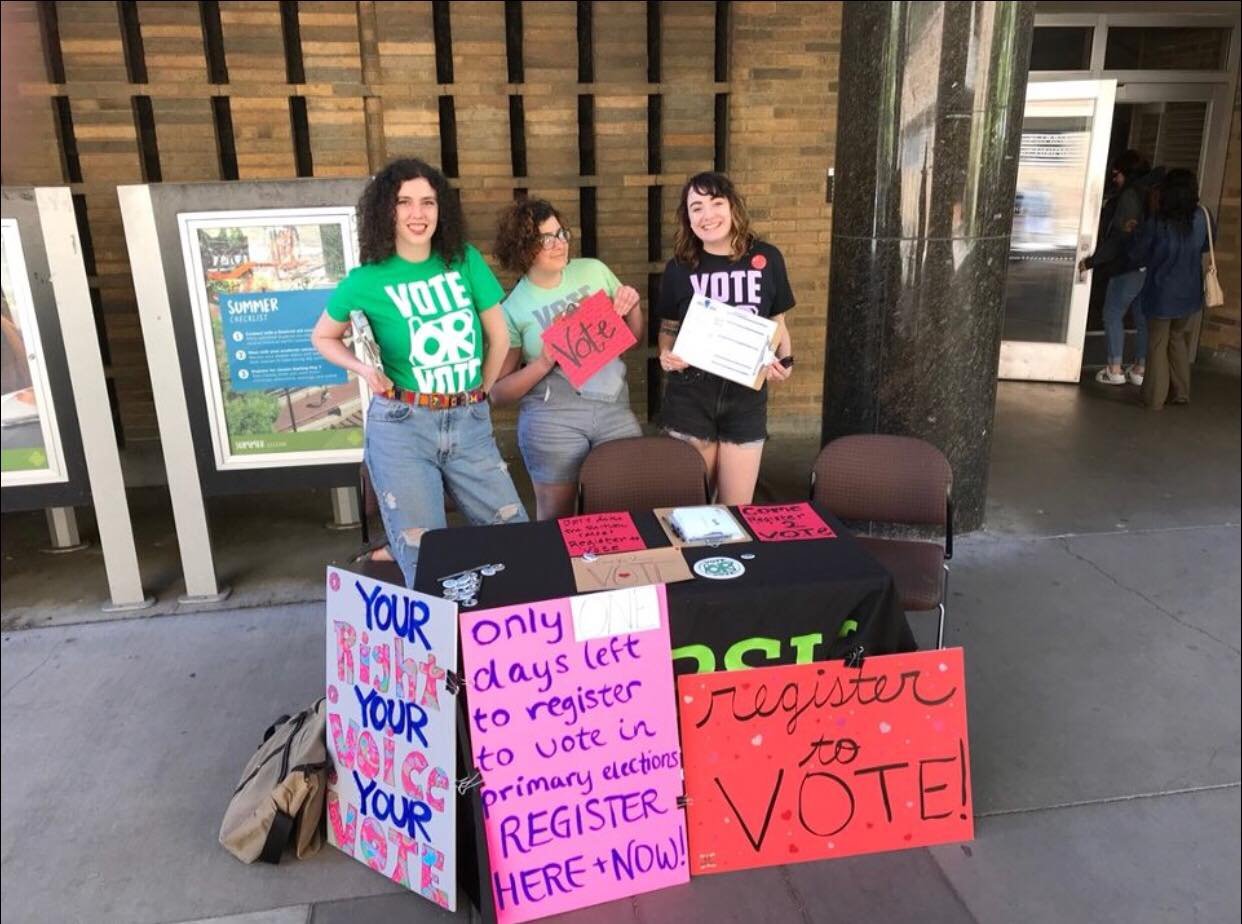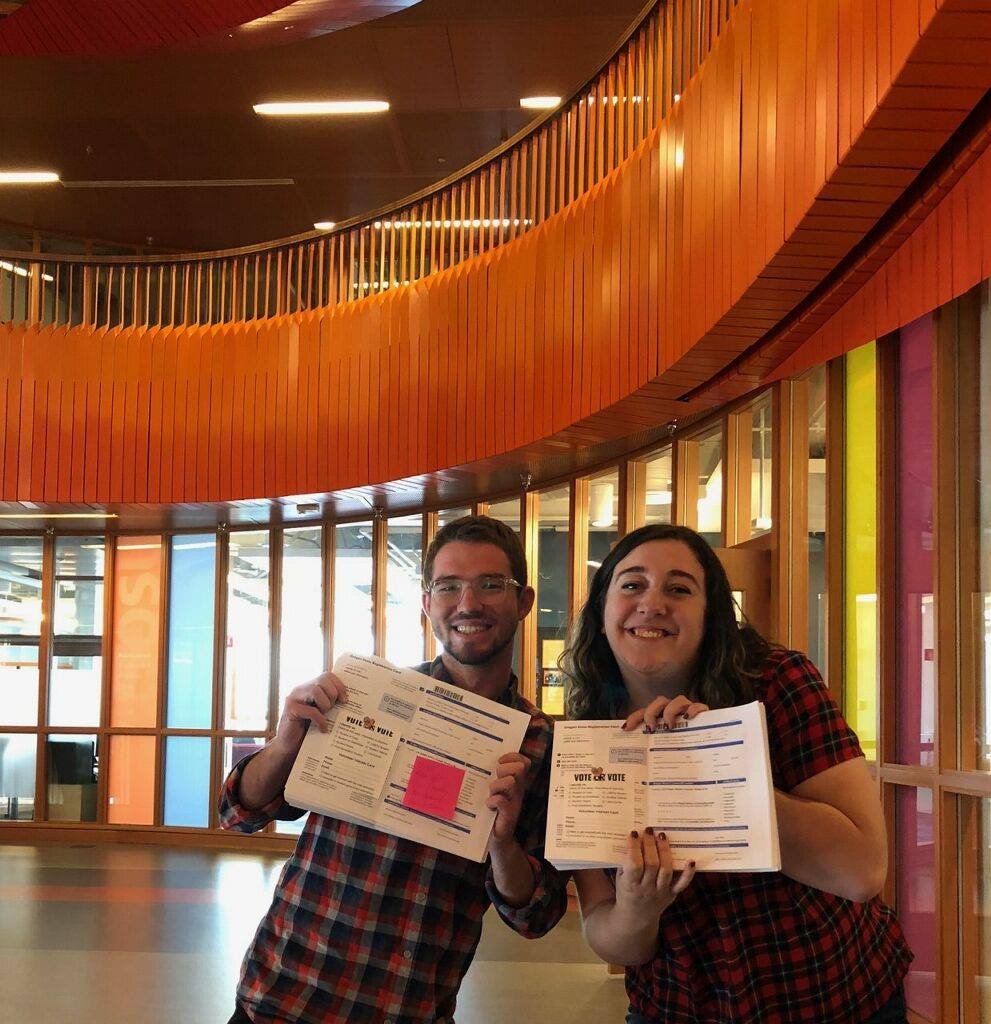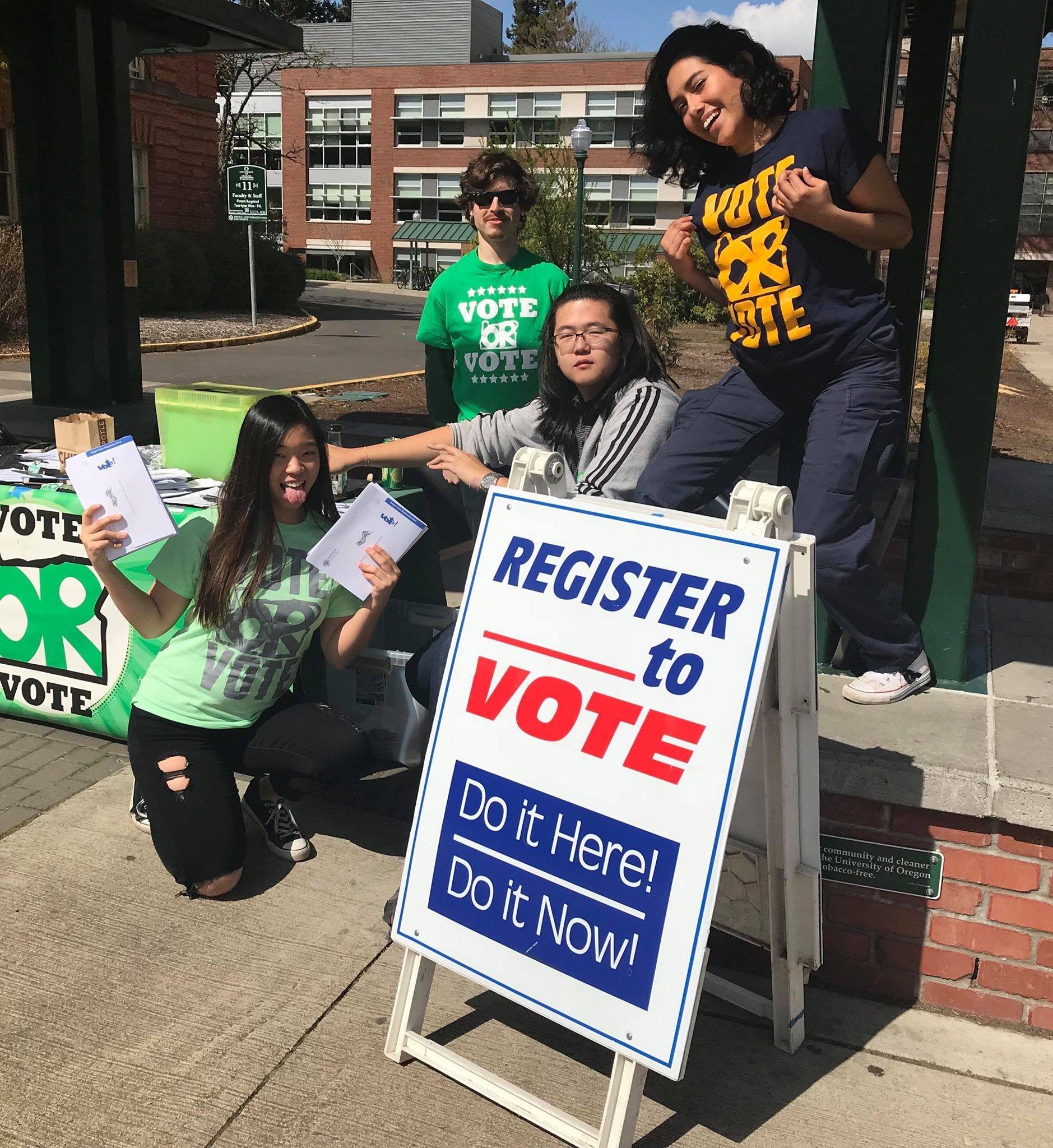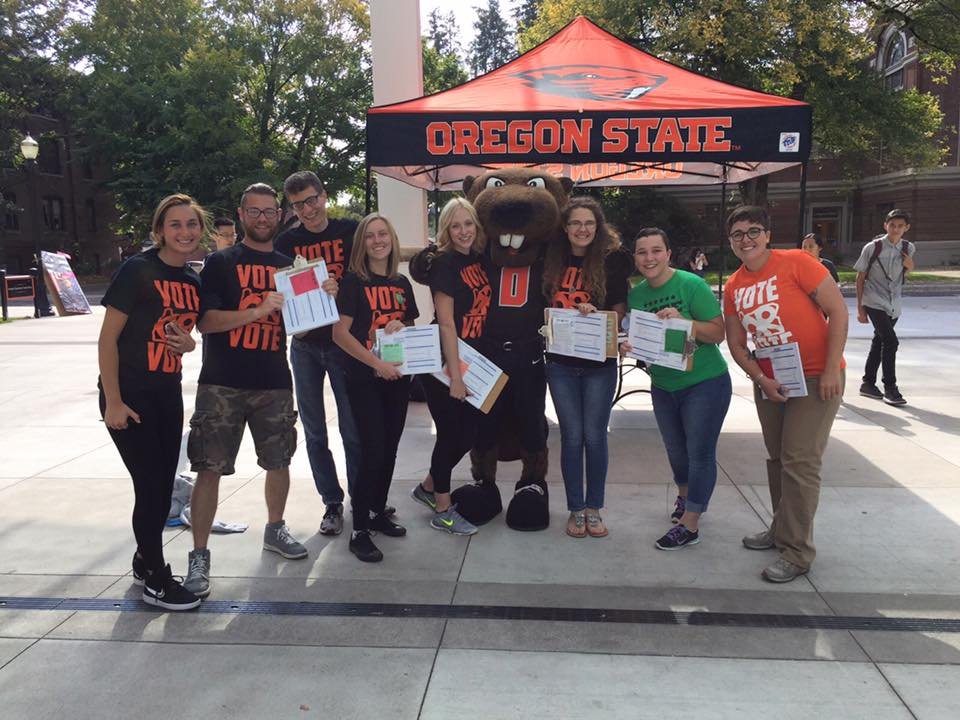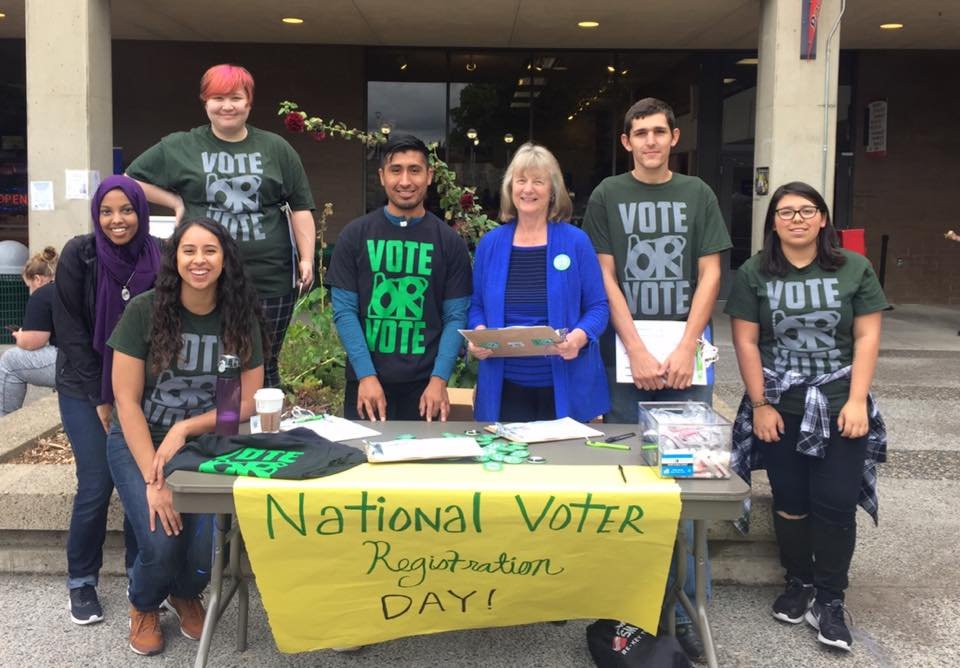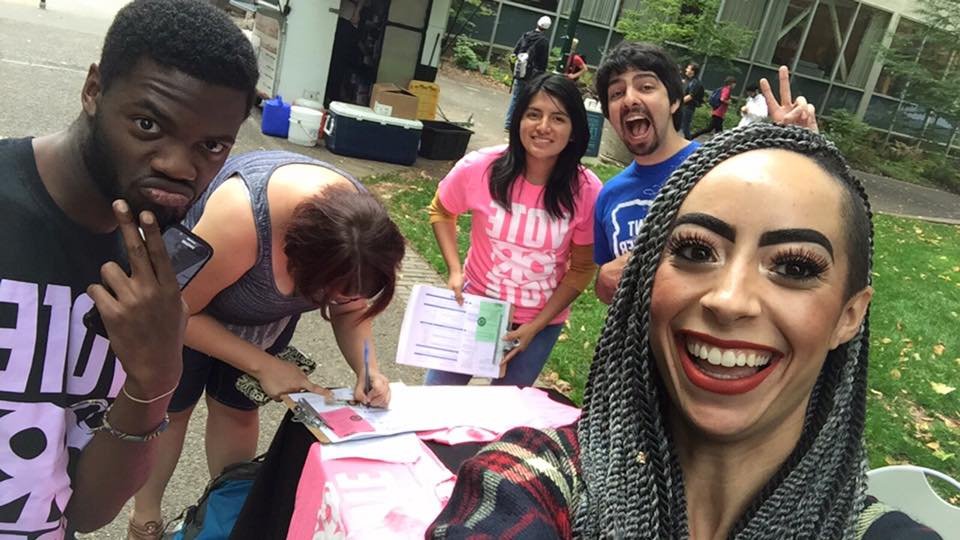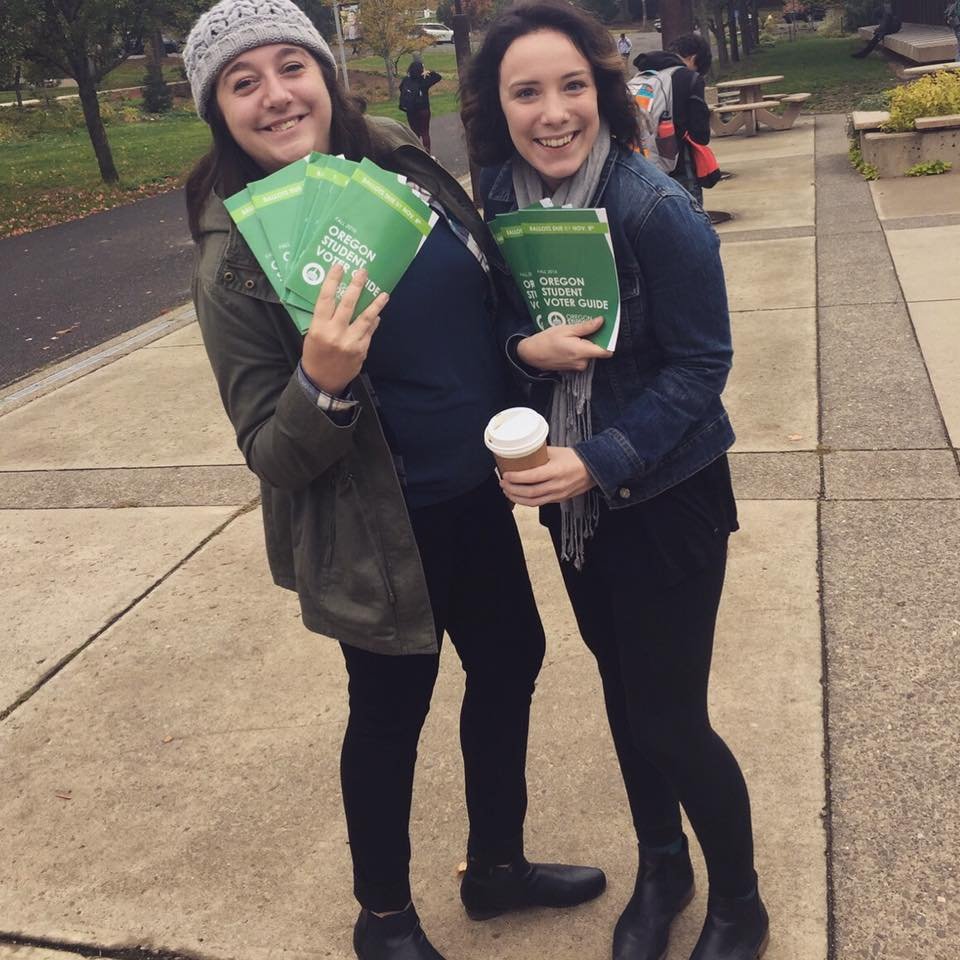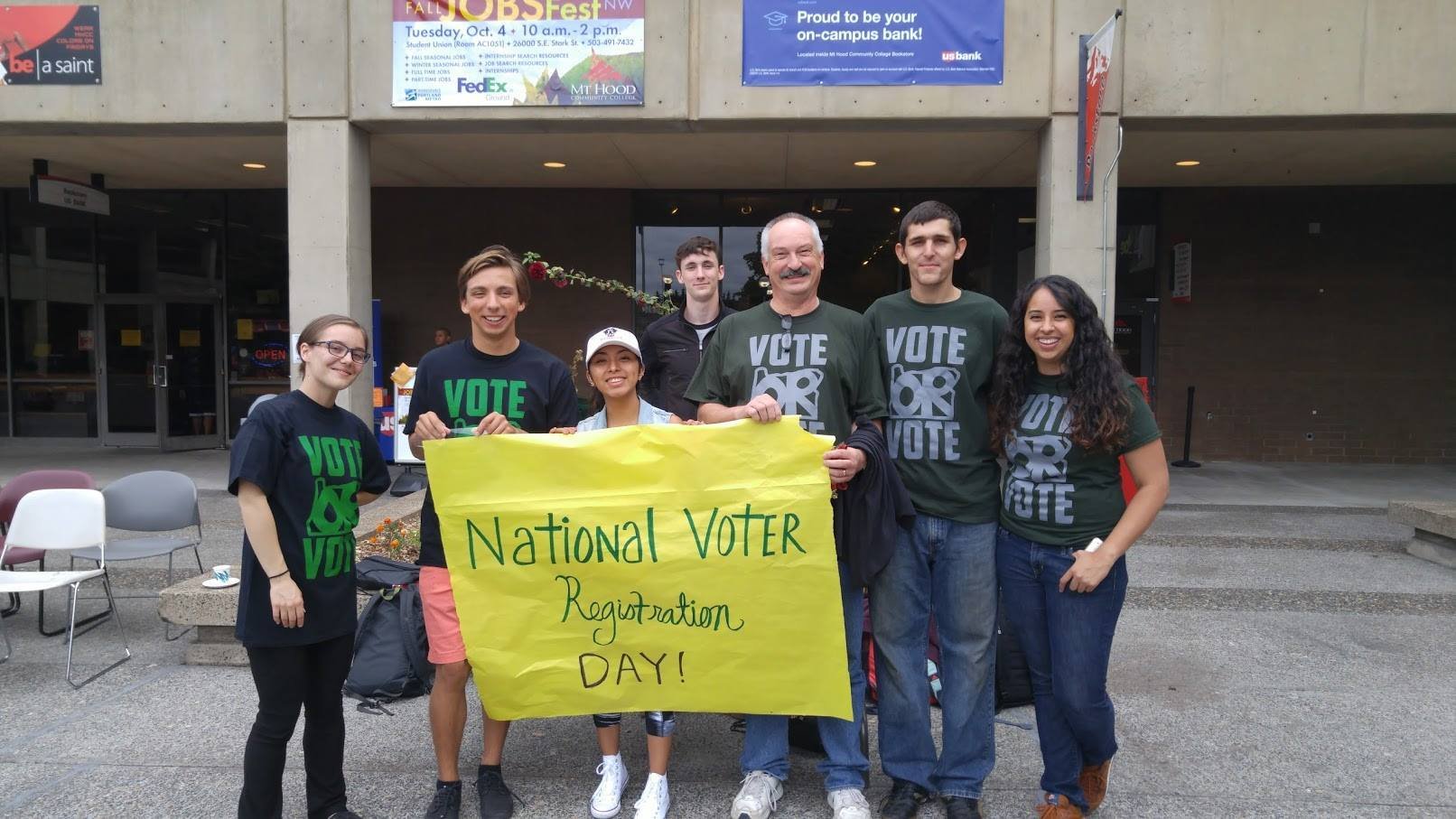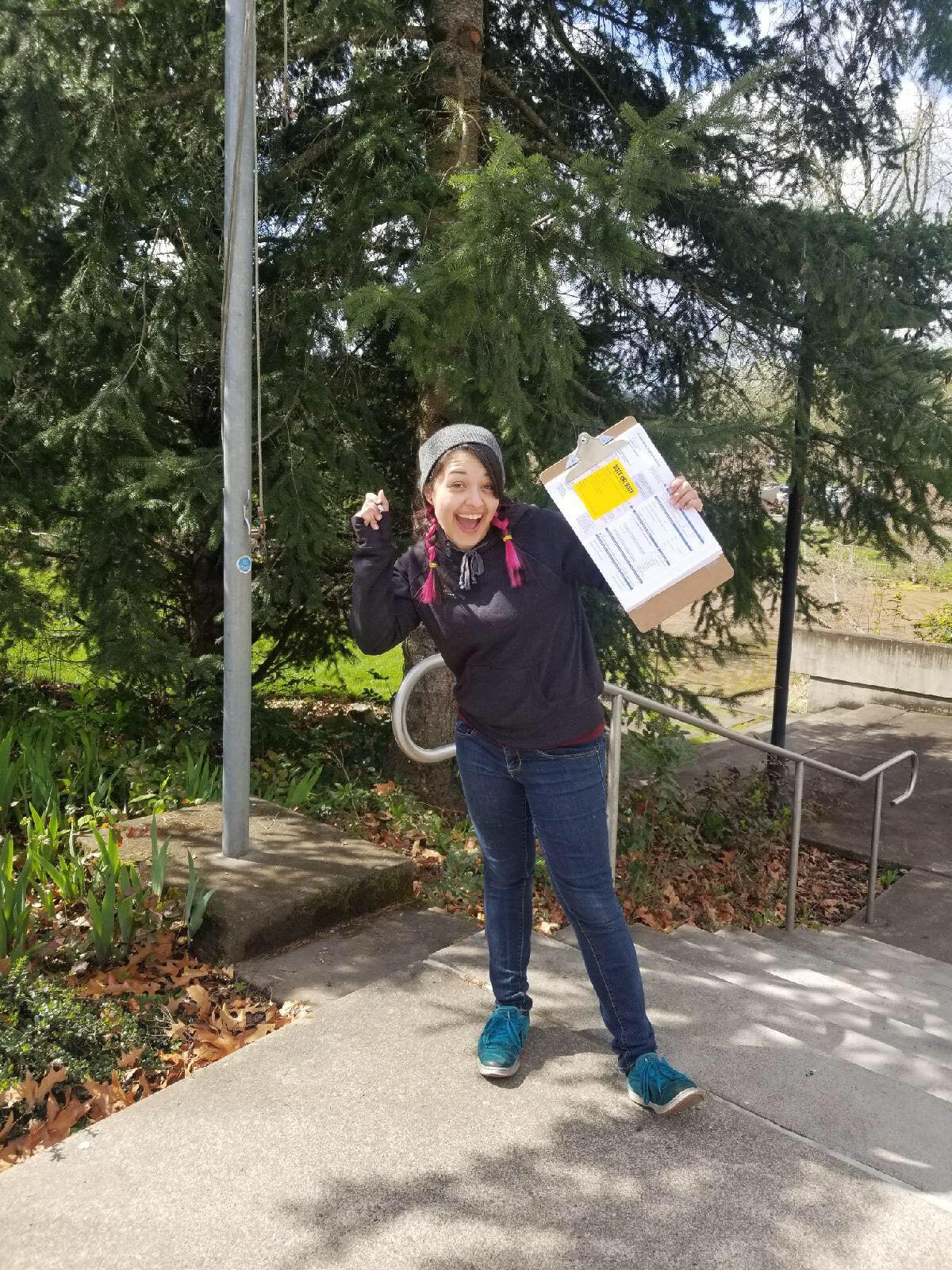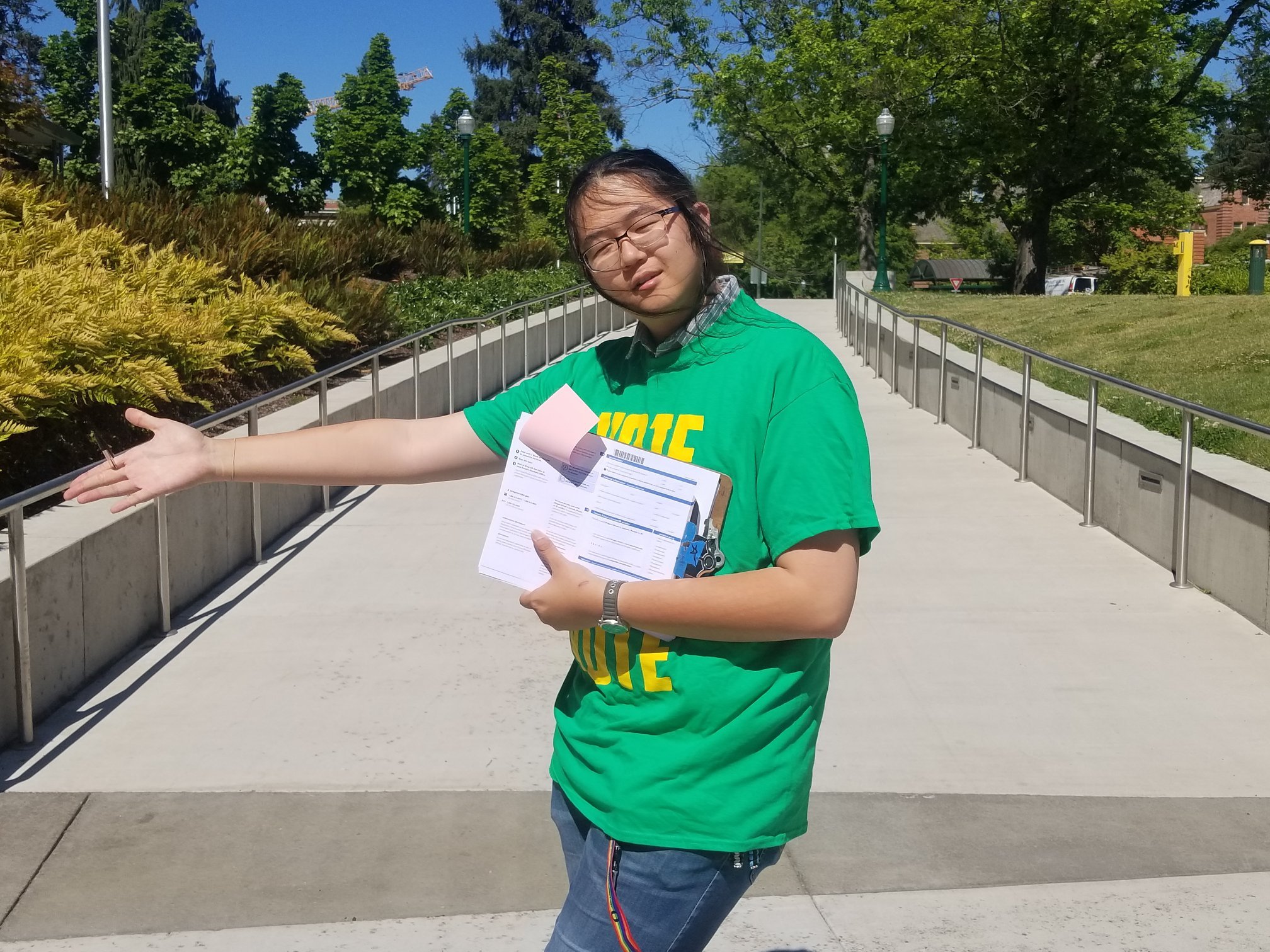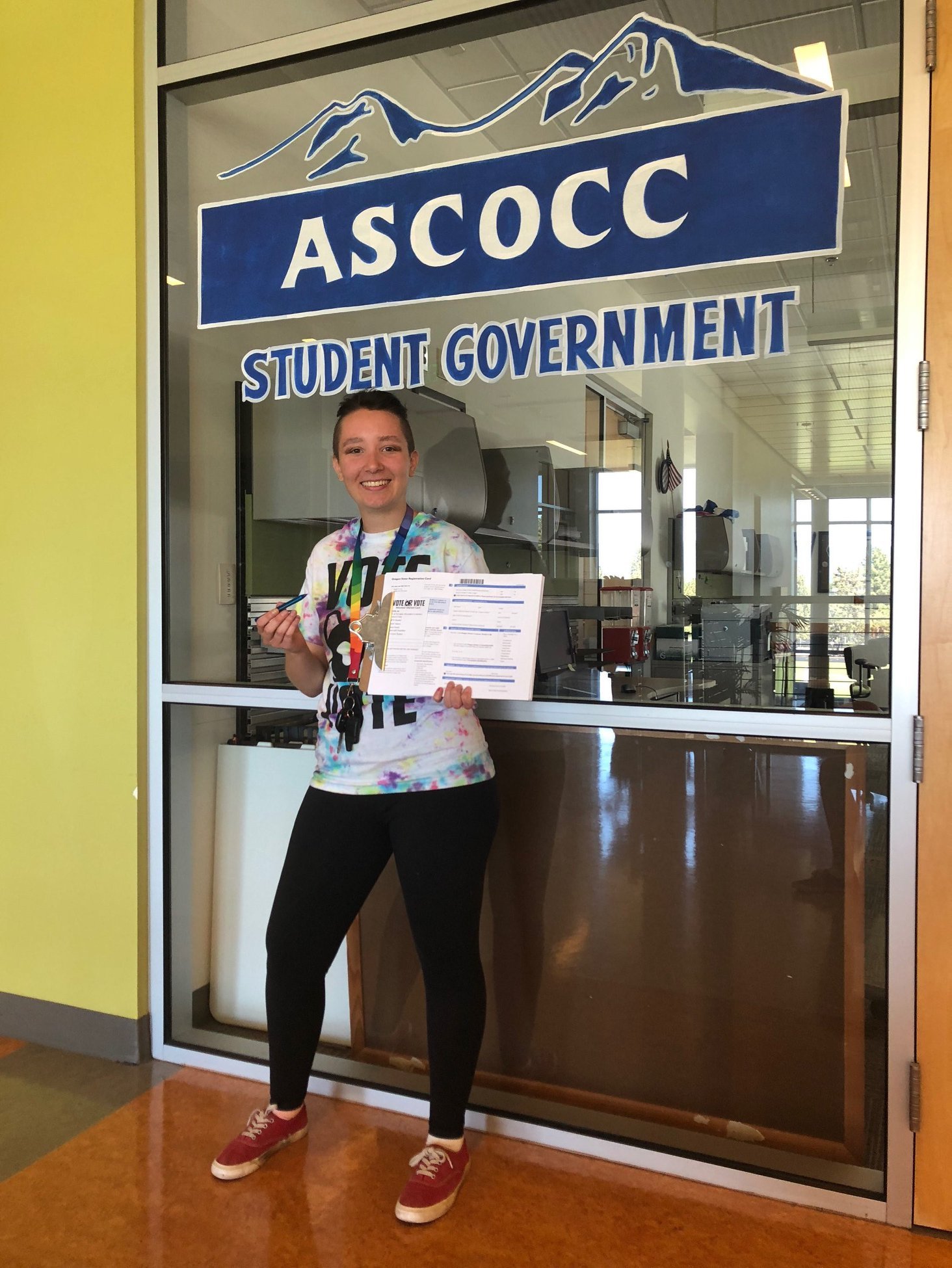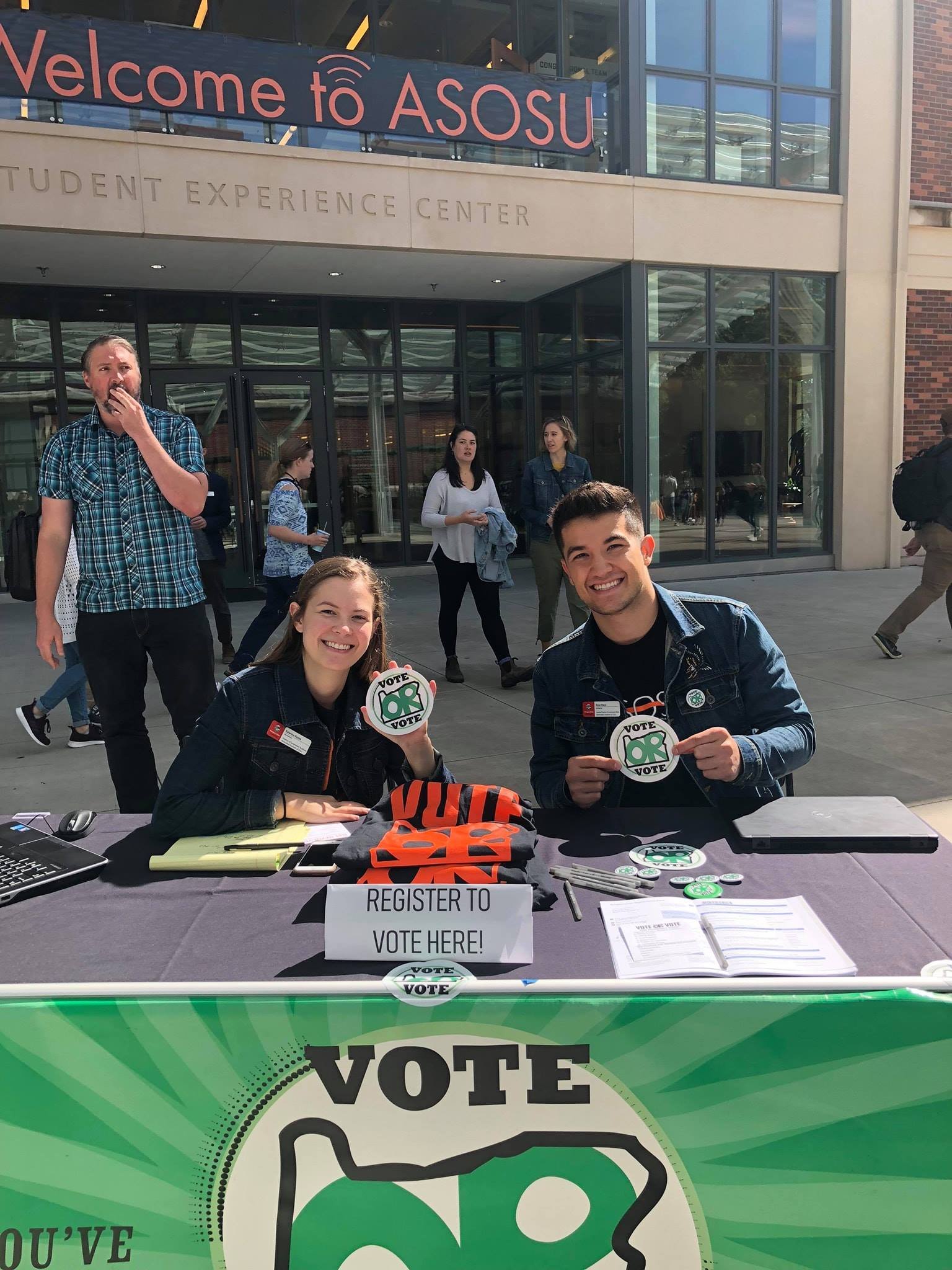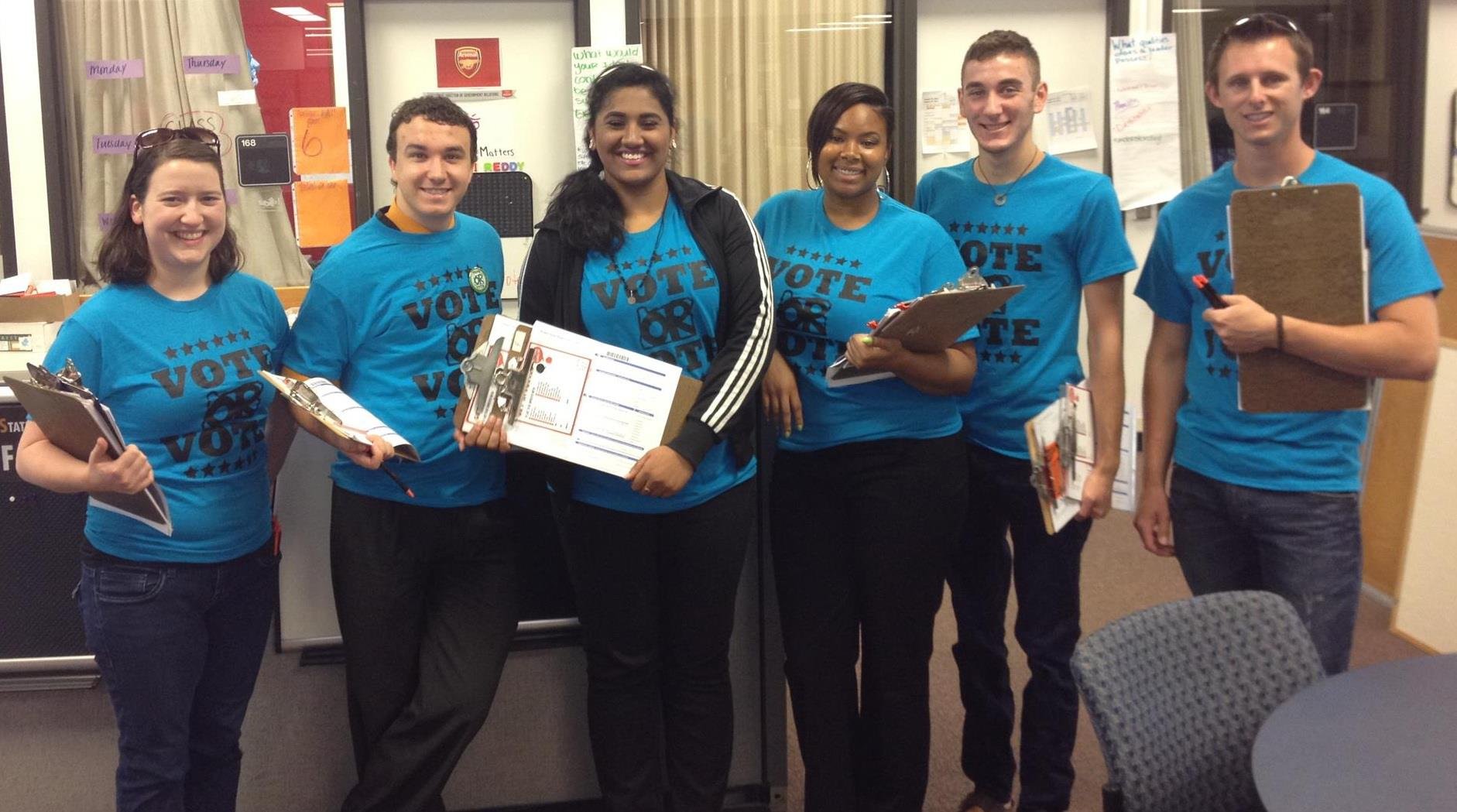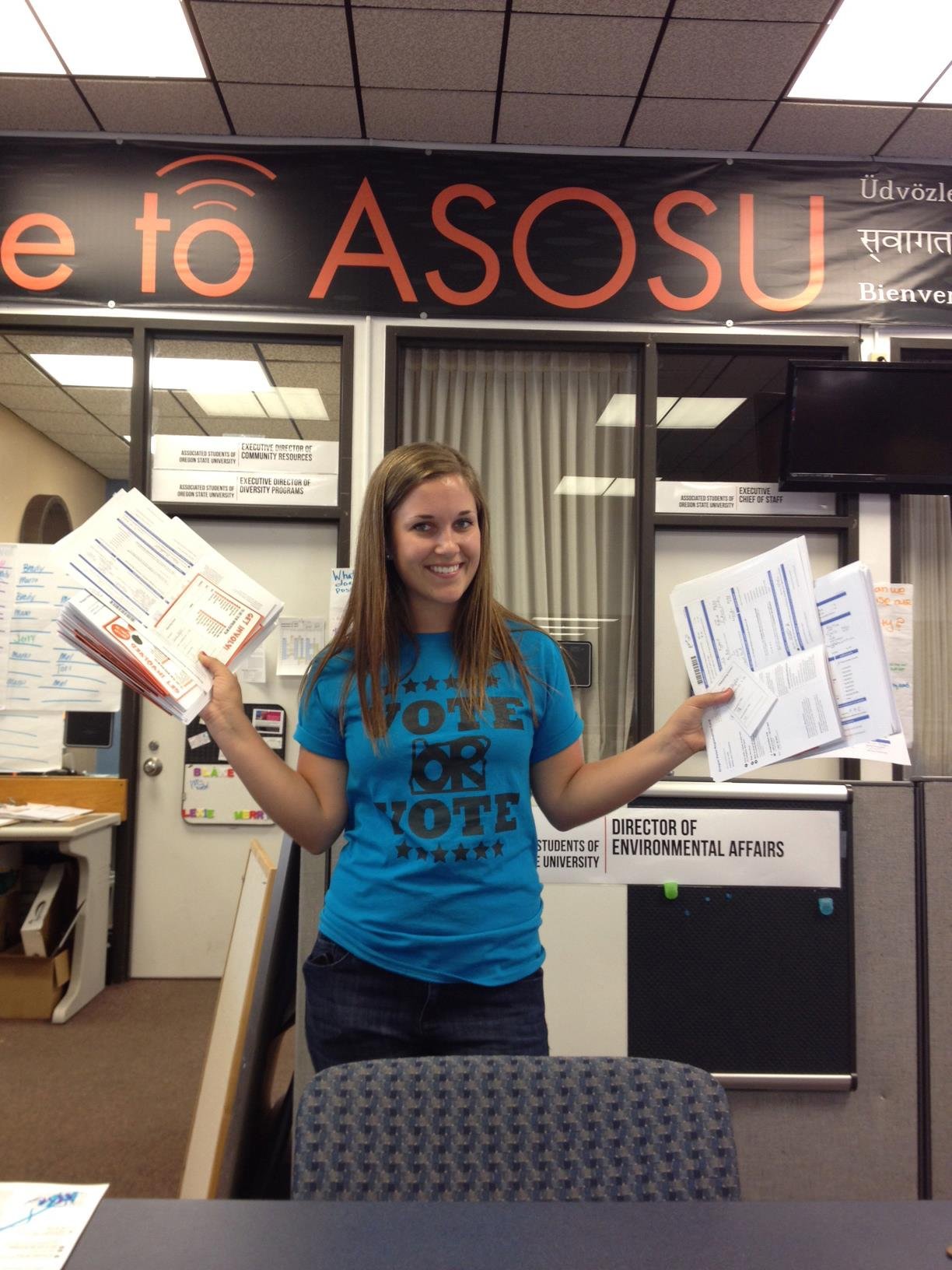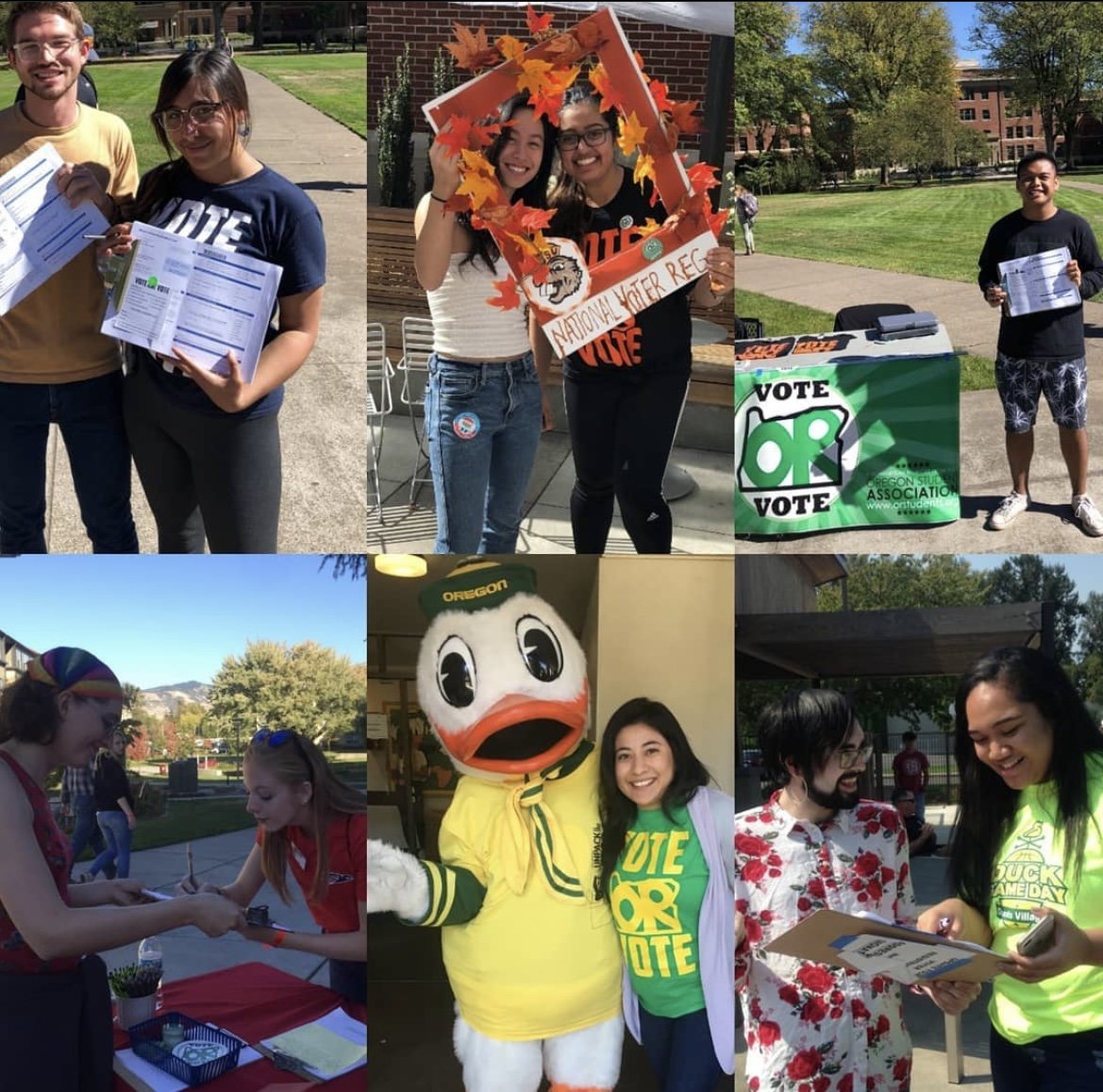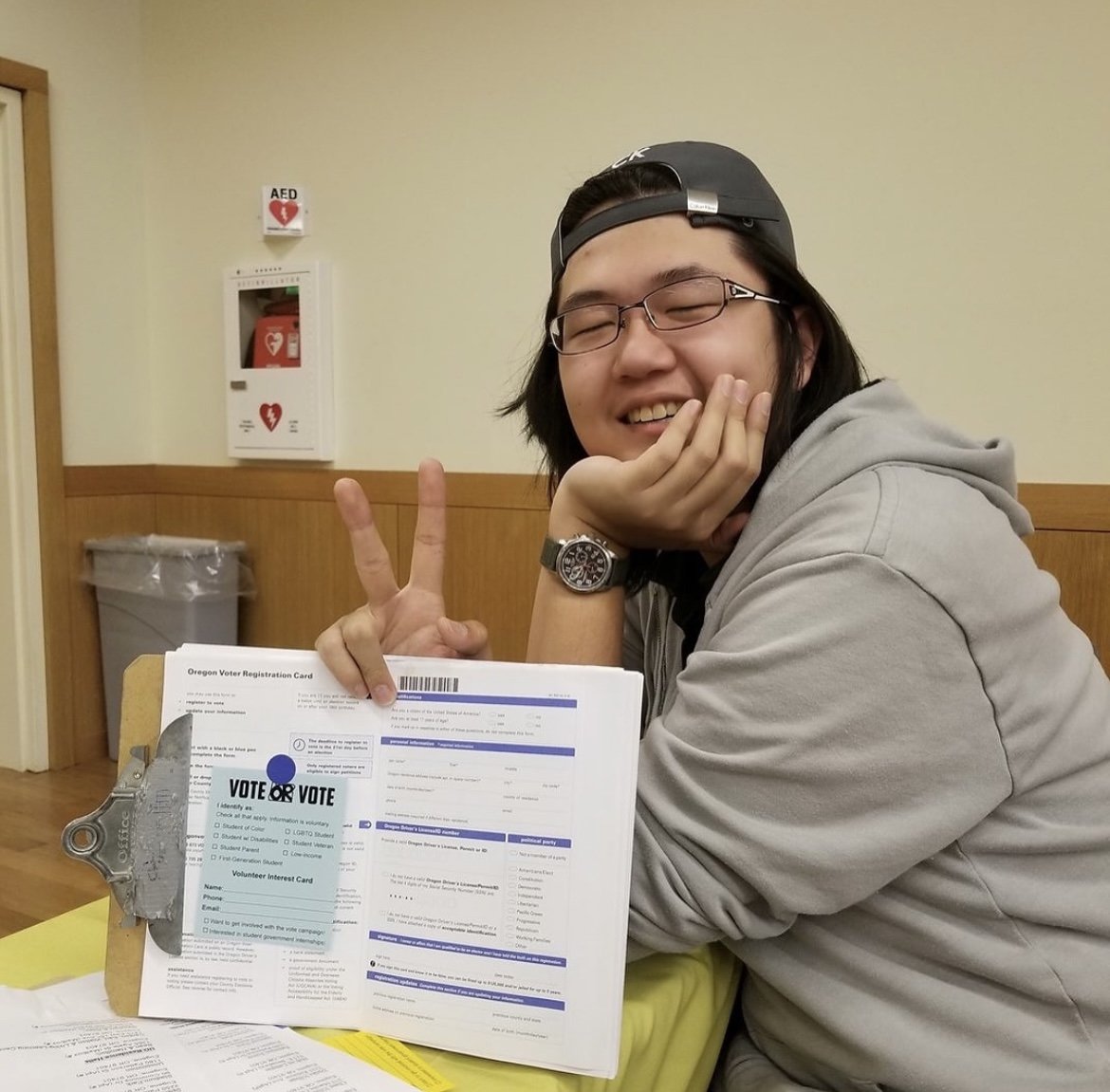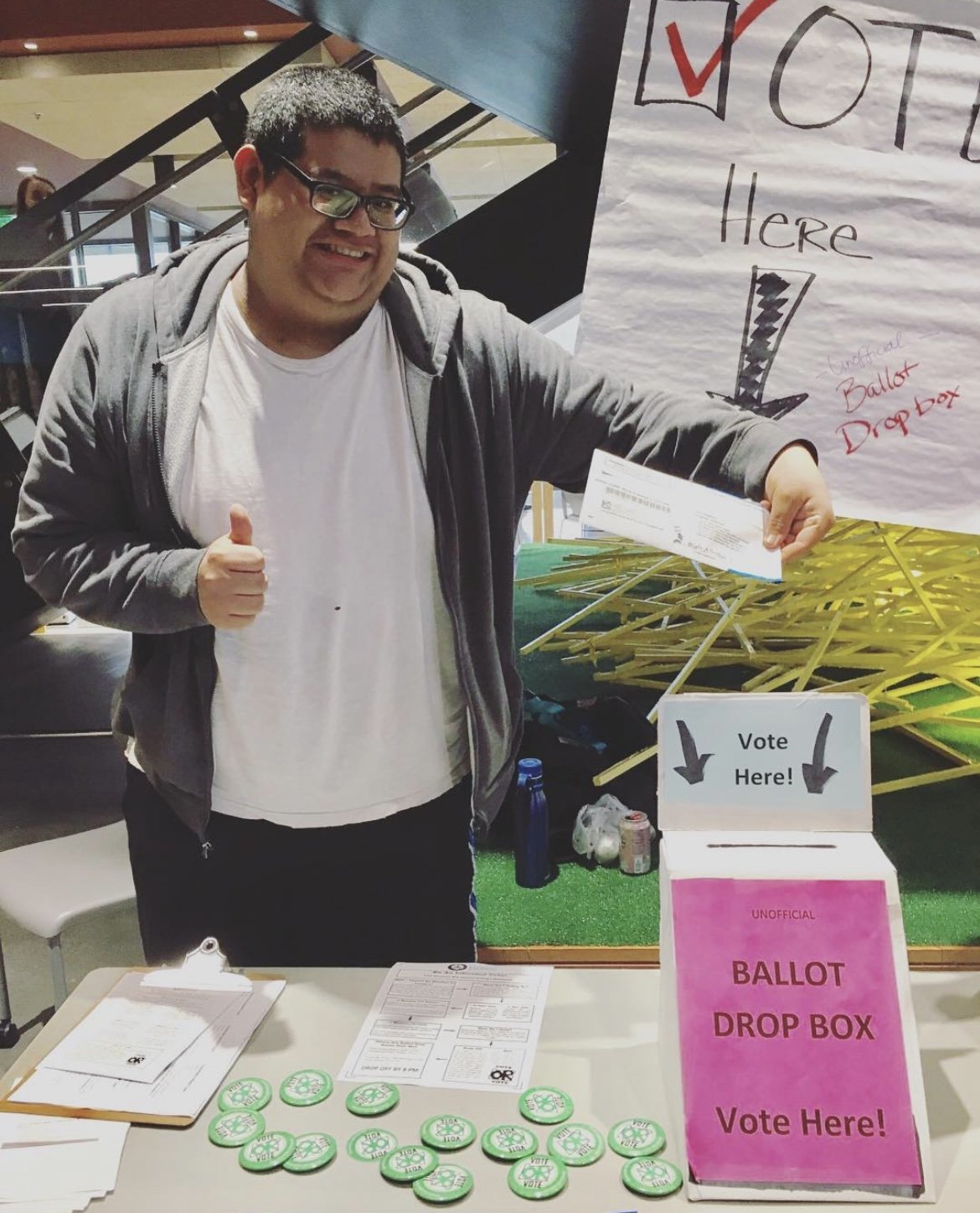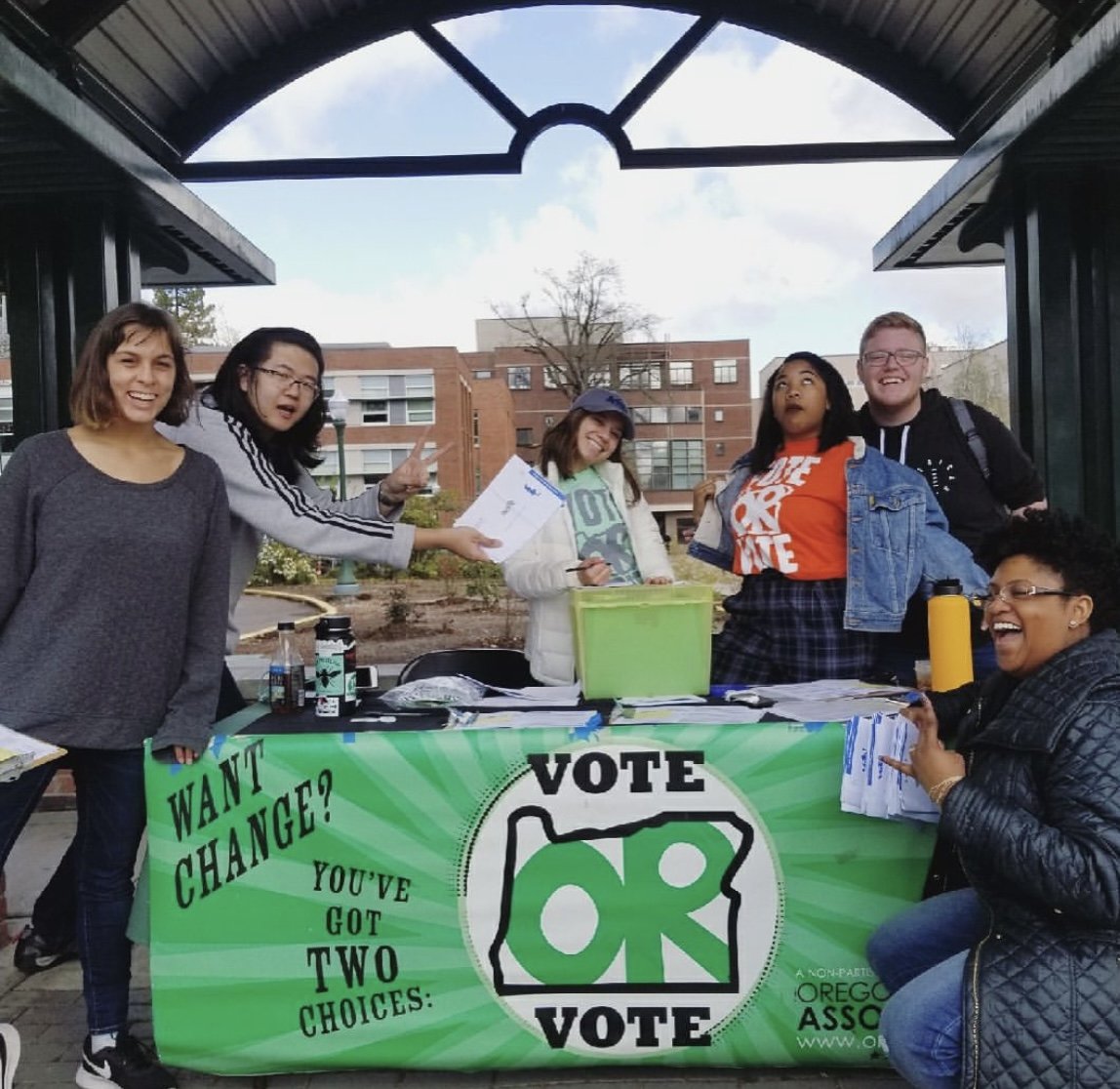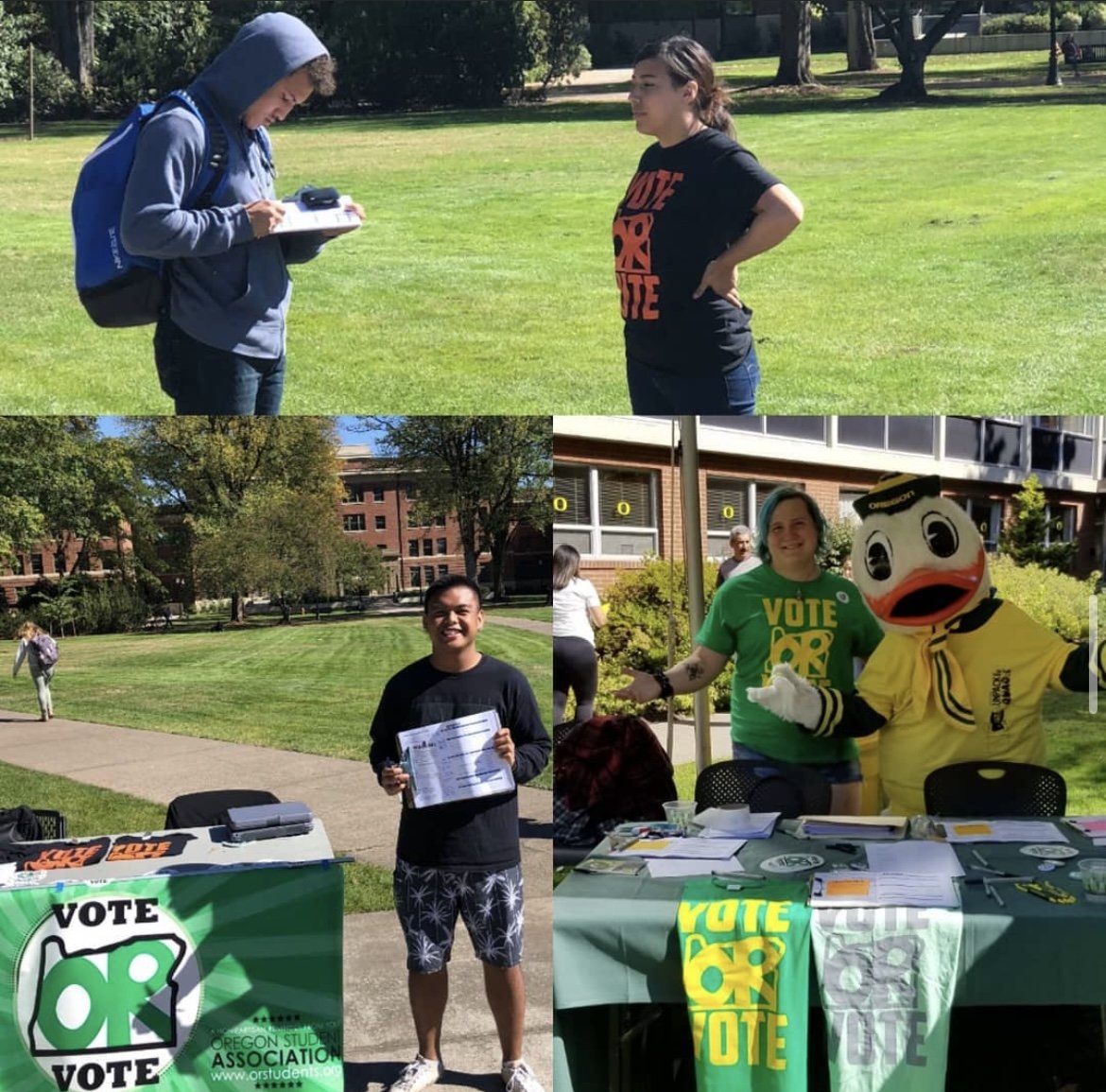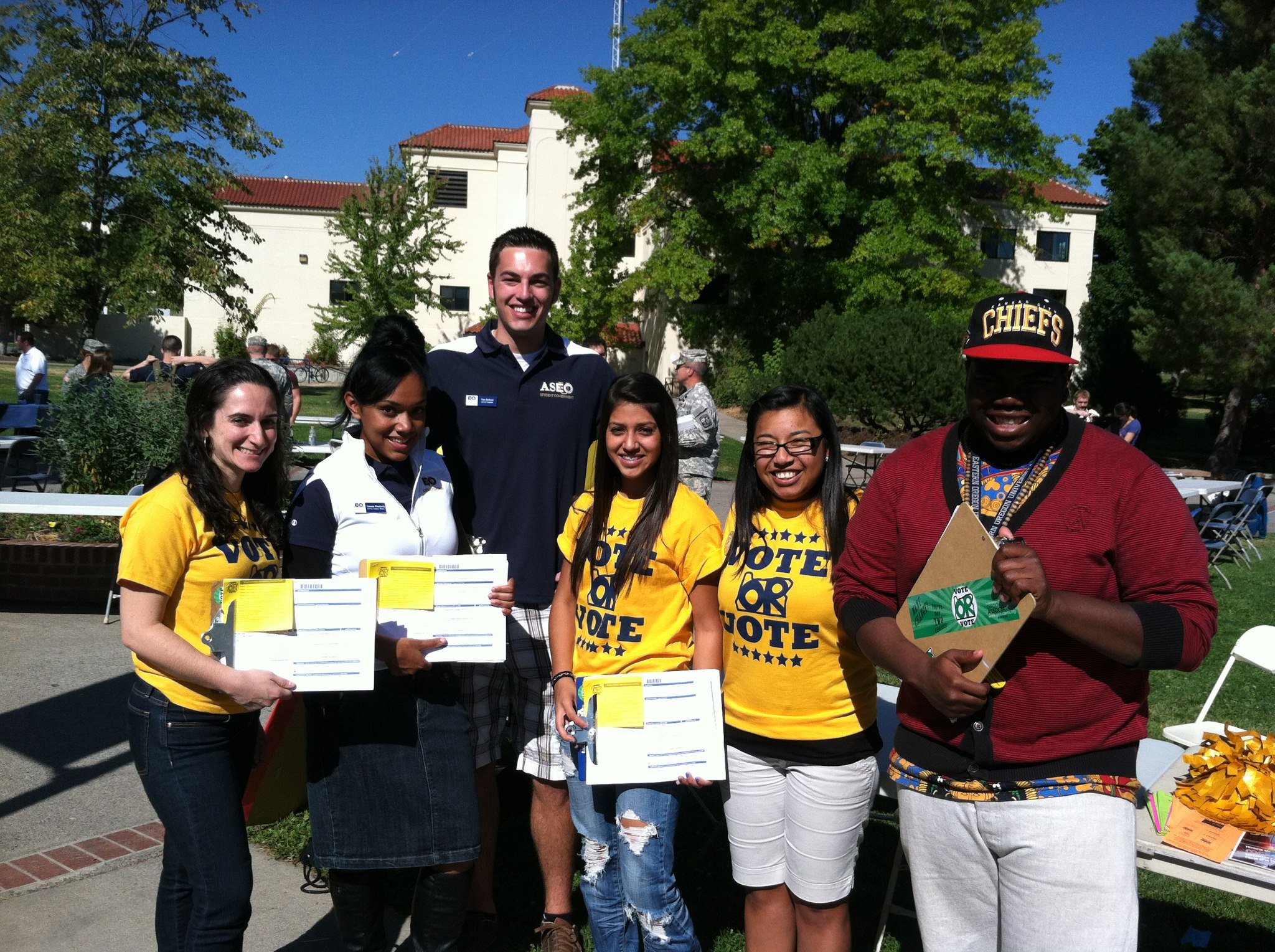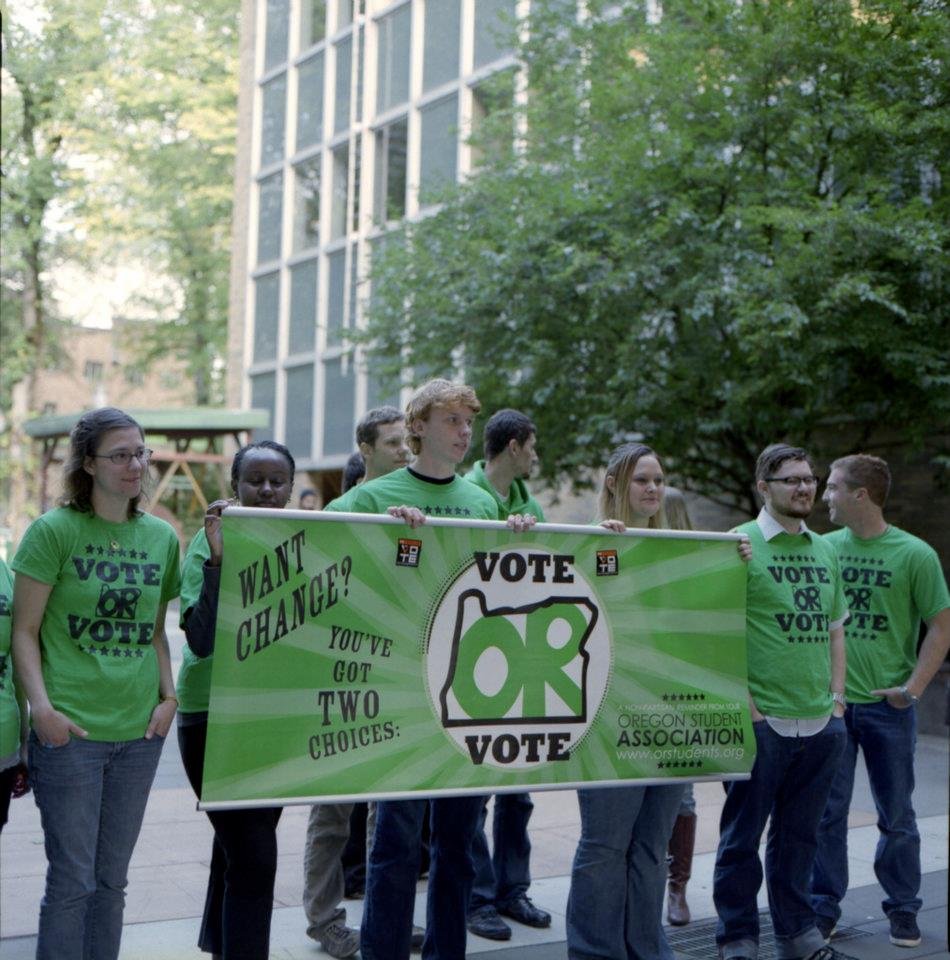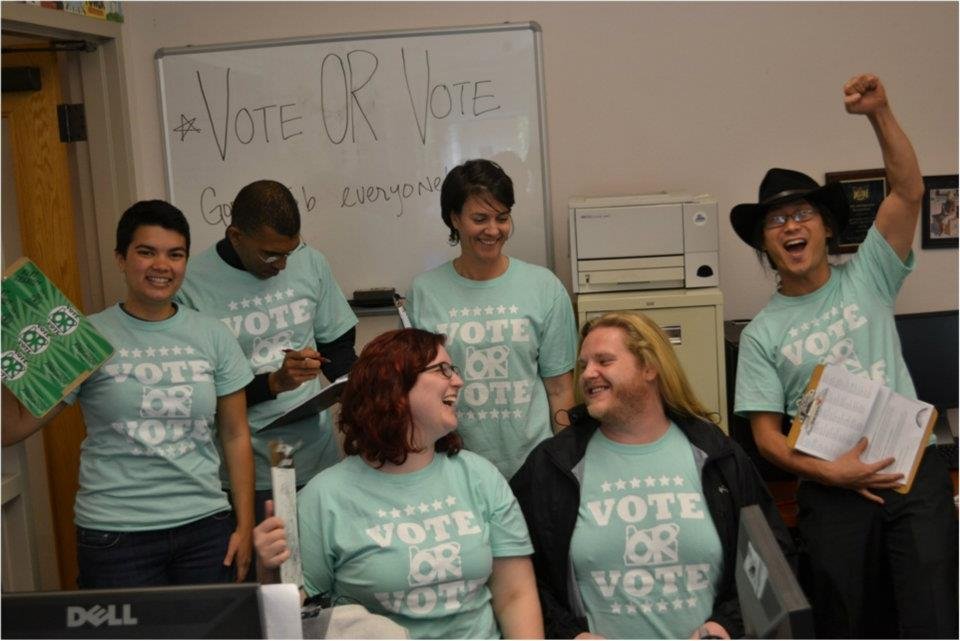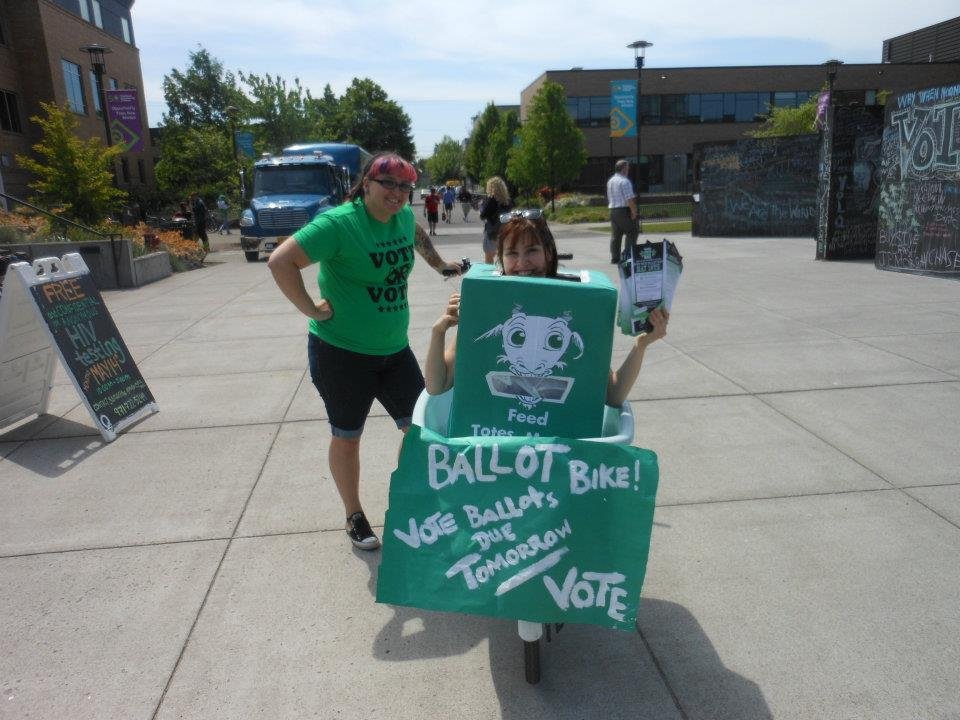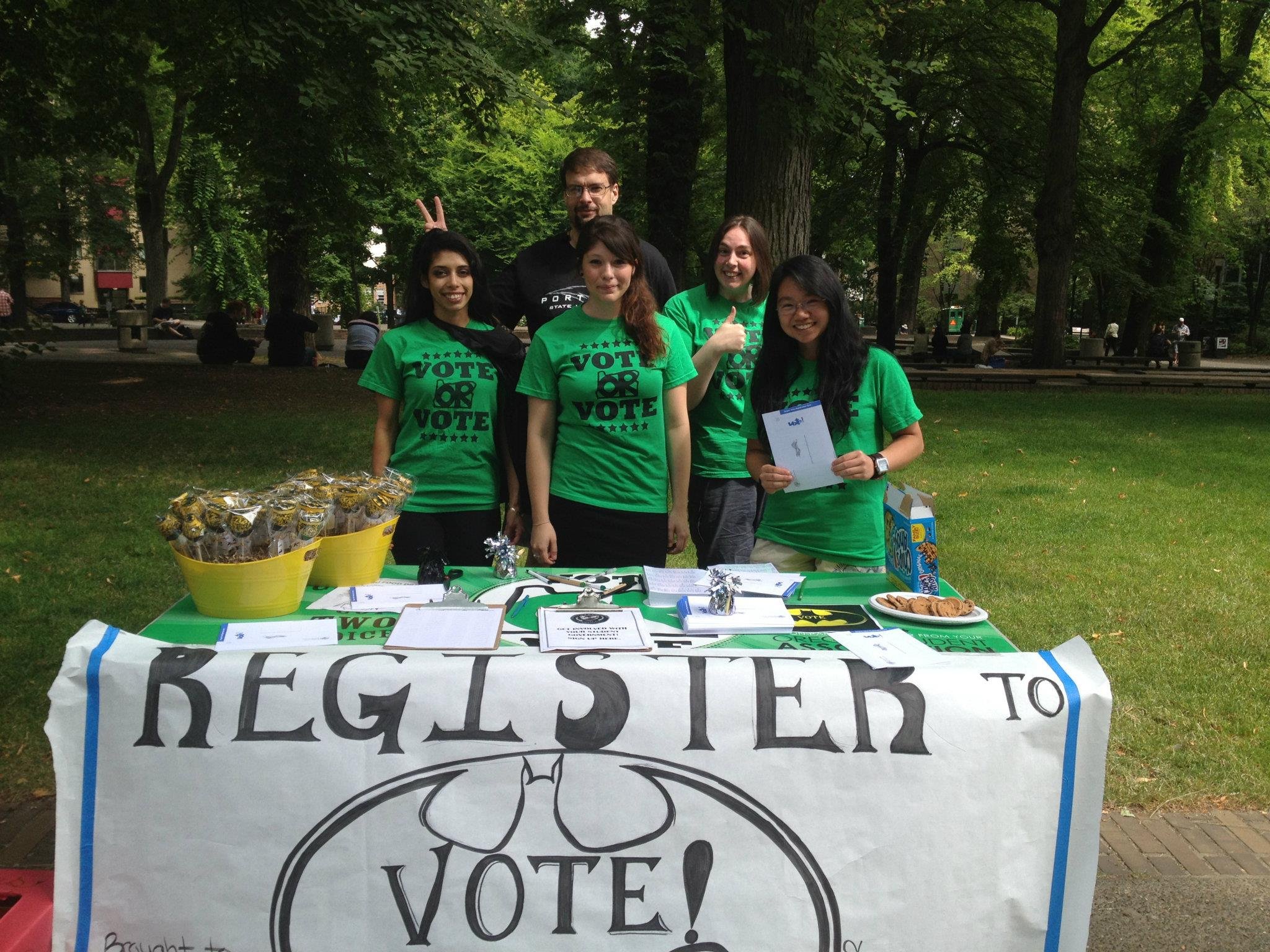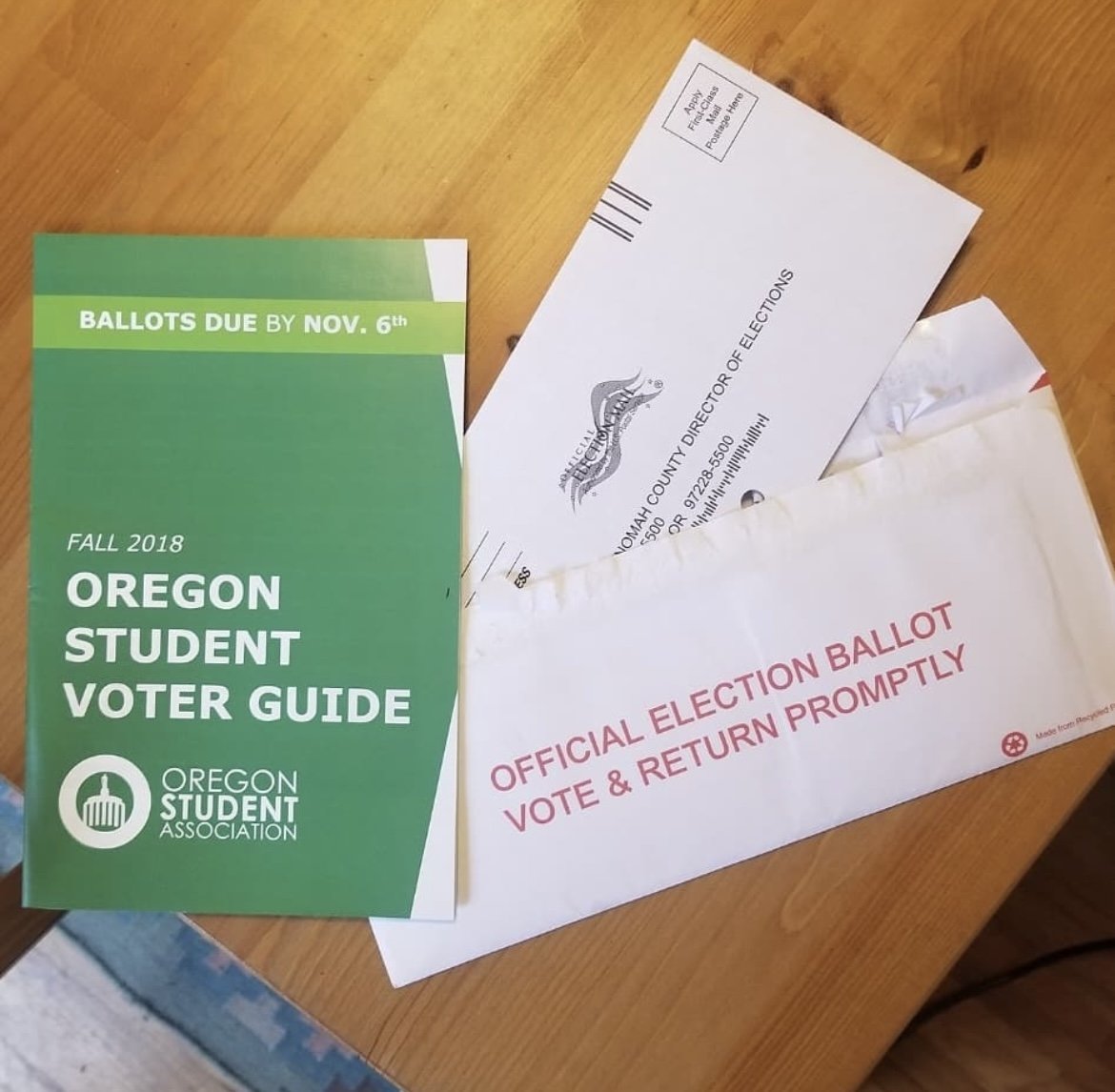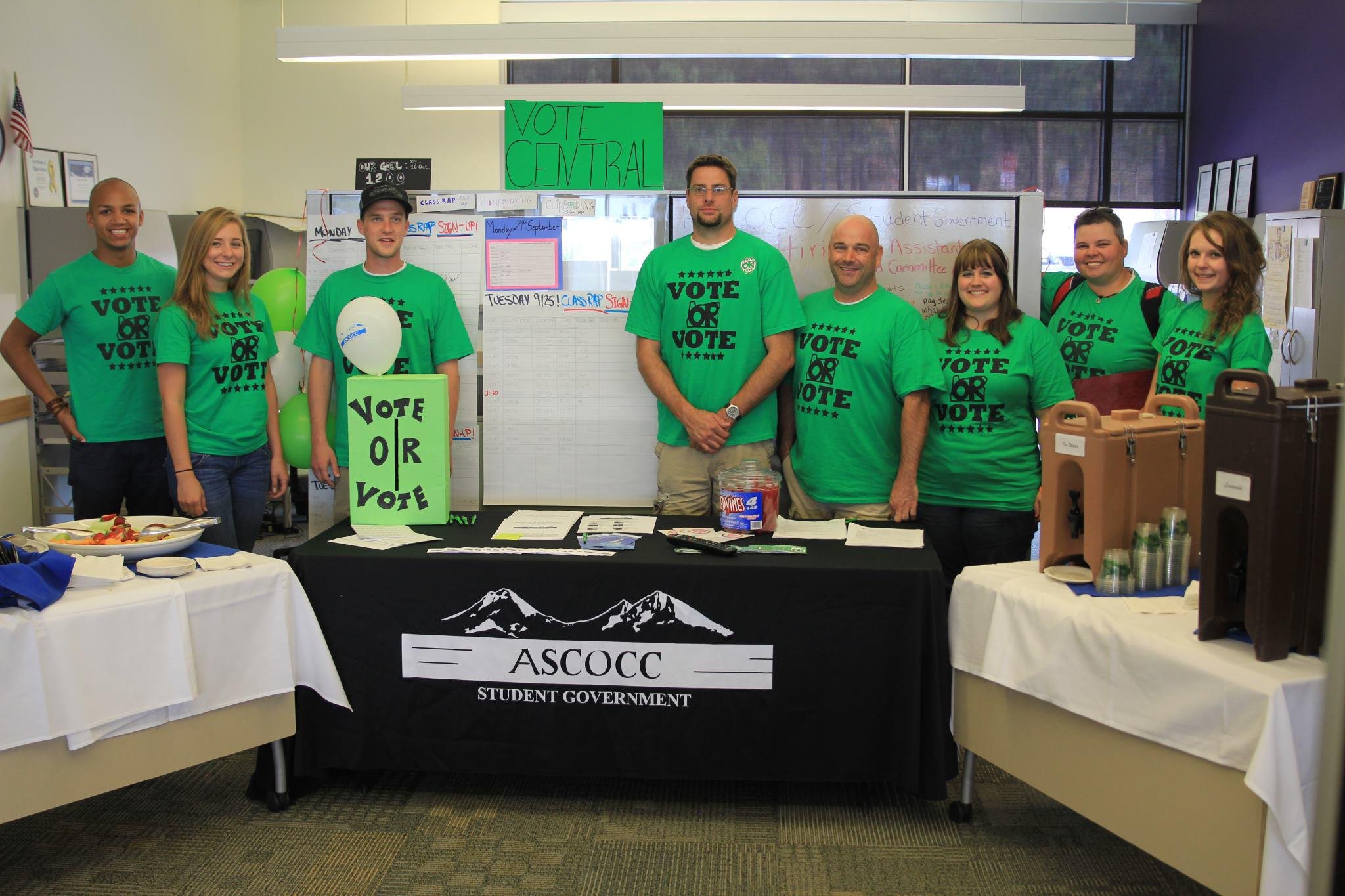
Oregon Student Voter Guide: 2024 General Election
The next statewide election in Oregon is the general election on November 5, 2024.
Local, state, and federal elections determine policies and laws that directly affect students' daily lives. From education funding to student debt forgiveness, voting is a fundamental way for students to ensure that their perspectives and concerns are represented by their elected officials and within the democratic process.
Important Dates: 2024 General Election
Registration Deadline: Tuesday, October 15th
Have you had a recent change in address, name, or need to change your party affiliation? Update your voter registration before Tuesday, October 15th.
Election Day: Tuesday, November 5th
Ballots that are mailed must be postmarked by election day. Ballots deposited in an official drop box must be received by 8 PM on election day.
Oregon Student Voter Guide - 2024 General
This non-partisan student voter guide is designed to empower Oregon students with the knowledge and tools they need to navigate the electoral process, understand ballot measures, and make informed voting decisions. Browse the guide to see key election dates, learn more about what’s on the ballot, and to make a plan for voting.
Statewide Races
Candidate Questionnaire
Our non-partisan candidate questionnaire offers insights into statewide candidates' positions on key topics affecting students and higher education. By reviewing their responses, you can choose candidates whose views and policies align with your priorities and values.
Here are the candidates for statewide offices we talked to:
-
Tobias Read (Democrat)
Dennis Linthicum (Republican) - NO RESPONSE
To see all candidates for this office, click here.
-
Dan Rayfield (Democrat)
Will Lathrop (Republican)
To see all candidates for this office, click here.
-
Elizabeth Steiner (Democrat)
Brian J. Boquist (Republican)
To see all candidates for this office, click here.
Secretary of State Candidate Responses
Tobias Read - Democrat / Working Families Party / Independent Party
If elected, what will you do to make higher education more affordable and accessible for Oregon’s students?
“As Treasurer and a state legislator, I have a proven record of championing increased investments in higher education. I’ve supported initiatives like the Oregon Promise and Oregon’s Opportunity Grants, which create more pathways to post-secondary degrees. I also worked with the legislature and organizations to pass the Education Savings Credit, shifting from a deduction to a refundable credit, making it easier for low-to-moderate income families to save for post-secondary education. I will continue advocating to ensure Oregon students have affordable opportunities.”
Dennis Linthicum - Republican / Constitution Party
If elected, what will you do to make higher education more affordable and accessible for Oregon’s students?
Dennis Linthicum did not respond to OSA’s request to complete the questionnaire.
Tobias Read - Democrat / Working Families Party / Independent Party
What strategies will you implement to increase voter registration and turnout among college students?
“First and foremost, I am committed to preserving Oregon’s vote-by-mail system, which has been instrumental in maintaining high voter participation. To further increase voter registration and turnout among college students, I plan to enhance voting accessibility by exploring new programs, such as opt-in notifications that inform voters when their ballots are received and counted. Additionally, I will work with colleges to integrate voter registration into campus activities, ensuring that students are informed and engaged to participate in our democracy.”
Dennis Linthicum - Republican / Constitution Party
What strategies will you implement to increase voter registration and turnout among college students?
Dennis Linthicum did not respond to OSA’s request to complete the questionnaire.
Tobias Read - Democrat / Working Families Party / Independent Party
How will you ensure that students are well-informed about their voting rights and the voting process?
“I will collaborate with schools, colleges, and community organizations to provide comprehensive, accessible voter education tailored to students. This includes distributing informational materials and using digital platforms to ensure students are well-informed about their voting rights and the voting process. By making this information easily accessible, I am committed to empowering students to participate confidently in elections.”
Dennis Linthicum - Republican / Constitution Party
How will you ensure that students are well-informed about their voting rights and the voting process?
Dennis Linthicum did not respond to OSA’s request to complete the questionnaire.
Attorney General Candidate Responses
Dan Rayfield - Democrat / Working Families Party
If elected, what will you do to make higher education more affordable and accessible for Oregon’s students?
“While I was Speaker of the Oregon house, we were able to increase Oregon Opportunity Grants and took steps like Senate Bill 273 (2023) to ensure part-time faculty and students have a seat at the table in key decisions. As Attorney General, I will crack down on predatory lending practices of the student loan industry and proudly continue Attorney General Rosenblum’s work to fight against predatory for-profit schools and deceptive or illegal marketing to students.”
Will Lathrop - Republican
If elected, what will you do to make higher education more affordable and accessible for Oregon’s students?
“I am really concerned about the price of higher education in Oregon and nationwide. Affordable education is a critical component for an equitable future and our state’s ability to foster a competitive workforce. The Attorney General stewards a myriad of critical powers, but none are closely related to the cost of higher education. However, through the Civil Rights Division, I will ensure that processes are required for colleges and universities operating in Oregon to ensure our institutions are freely accessible and devoid of discriminatory practices.”
Dan Rayfield - Democrat / Working Families Party
How will you ensure students' rights are protected, particularly in cases of discrimination and sexual assault?
“Everyone should feel safe on campus and know what their resources are if they experience sexual assault or discrimination. I am committed to enforcing our laws, making sure people know what our laws are. In recent years, we’ve seen systematic efforts to weaken Title IX protections. As Attorney General, students can count on me to fight against those efforts and ensure every student has a safe place to learn regardless of their gender identity, sexual orientation, religion, or other protected class.”
Will Lathrop - Republican
How will you ensure students' rights are protected, particularly in cases of discrimination and sexual assault?
“I started my career as a sex abuse prosecutor, standing with hundreds of sexual assault and domestic violence victims in court to tell their stories and demand justice. Most recently, I led multinational teams in Africa to protect women and children from violence and human trafficking. My decision to run for Attorney General is driven by Oregon’s inability to protect people living on the margins from exploitation and crime. Victim protection, including for students facing sexual assault and discrimination, is my top priority.”
Dan Rayfield - Democrat / Working Families Party
What initiatives will you propose to combat fraud and predatory practices in the student loan industry?
“I just recently paid off my student loans years after leaving college and law school. Students already work hard to go to school - they shouldn’t have to deal with the extra hassle of complications with student loans. I have spent my career standing up to big companies on behalf of consumers. As Attorney General, I am committed to taking on predatory lenders, corporate wrongdoing, fraud, wage theft, sexual harassment, and abusive practices by big companies.”
Will Lathrop - Republican
What initiatives will you propose to combat fraud and predatory practices in the student loan industry?
“It is the Attorney General’s job, under the office of consumer protection, to police predatory practices by any business or institution operating in the State of Oregon. Protecting students from financial fraud, discrimination, or exploitation is the job of the Attorney General and I am committed to making sure Oregon has zero tolerance for predatory lending and student loan fraud.”
Treasurer Responses
Elizabeth Steiner - Democrat
If elected, what will you do to make higher education more affordable and accessible for Oregon’s students?
"“I will increase the uptake of 529 plans, and implement a child savings account program funded with philanthropic dollars to help Oregon families save for their children’s future. We know that students with 529 plans are far more likely to enroll in post-high school education. Similarly, with a child savings account program, every child when they reach the age of 18 will have some amount of savings to pursue education, find housing of their own, or invest in a vehicle for work or school.”
Brian J. Boquist - Republican / Constitution Party
If elected, what will you do to make higher education more affordable and accessible for Oregon’s students?
“I will focus on expanding revenue to the common school fund that is supposed to contribute to education in Oregon. FYI, the state treasurer is not a budgeter or legislator, thus has no direct budget or revenue impact on education funding. It is an interesting question, as is the last question, given the legal role of the state treasurer. The Governor and Legislature oversee education legally, which as a reader knows, is overly expensive with less value every year according to students themselves after graduation.”
Elizabeth Steiner - Democrat
How will you improve the Oregon College Savings Plan (OCSP) and make it more accessible to low-income families?
“I plan to leverage Oregon’s universally offered new baby home visitation program to increase enrollment in College Savings Plans, and I will partner with community organizations to push out culturally specific adult financial literacy education. I’ll also work to make signing up and accessing Treasury savings programs easier by putting all savings programs in one place accessible via computer or mobile device, so that families with ABLE accounts or OregonSaves accounts can just as easily enroll in a 529 plan for their children’s future.”
Brian J. Boquist - Republican / Constitution Party
How will you improve the Oregon College Savings Plan (OCSP) and make it more accessible to low-income families?
“Getting wider reach to potential participants in the electronic age is the key. Further, improving returns and trust in government is critical to get low-income families with little faith in government to participate. Given low-income families have almost zero discretionary income to place in savings, the solution is increasing living wage jobs in a failing, financial-based economy that produces very little goods due to de-industrialization. Long term, Oregon must invest in Oregon itself via PERS, etc. rather than funding United States Government debt and profiteering private equity firms investing in places like Israel and Ukraine.”
Elizabeth Steiner - Democrat
How will you work to provide students with resources and guidance on managing their finances and debt?
“I will work with our universities and community colleges on programs modeled after Oregon State University’s Center for Advancing Financial Education to make it convenient for students to get aid, and I will push for institutions to include financial literacy guidance as part of financial aid packages. I also believe we should do more to provide these resources at the K-12 level, so that incoming post-secondary students are aware of all the scholarships and aid they may be eligible for.”
Brian J. Boquist - Republican / Constitution Party
How will you work to provide students with resources and guidance on managing their finances and debt?
“In reality, the State Treasurer by law is really the state bookkeeper, banker, investor, state debt manager, and one of three land board members. The vast majority of Oregonians are uneducated to the real constitutional and statutory functions of the Treasurer. All three of the questions in the questionnaire are actually outside the original scope of the treasury. The savings program is the fairly new exception. K-12 education used to provide financial management education. Why not anymore? The Treasurer can use the position to promote access to financial education plus the land board position to pressure to some degree the HECC and Universities to better educate incoming students instead of encouraging borrowing and debt so they themselves can make money at the expense of students. Likewise, pressure K-12 to put financial management back into high school so students are educated in advance of debt problems.”
Ballot Measure Explanations
Statewide ballot measures provide Oregonians with a direct mechanism for enacting change. This is your chance to create laws with your vote!
Below, we review each ballot measure in detail and learn more about what a “yes” and “no” vote means for each statewide ballot measure.
Here are the statewide ballot measures:
MEASURE 115: Impeaching Statewide Officials
MEASURE 116: Salaries for Elected Officials
MEASURE 117: Ranked-Choice Voting
MEASURE 118: Corporate Tax Revenue Rebate
MEASURE 119: Unionization of Cannabis Workers
Ballot Measure 115
TOPIC: Impeaching Statewide Officials
-
Amends the state constitution to allow the Oregon House of Representatives to impeach the governor, secretary of state, attorney general, state treasurer and state labor commissioner if two-thirds of members agree. The body would be limited in taking that step to instances of corruption, dereliction of duty or a “felony or high crime.” Once impeached by the House, the Senate would carry out a trial, presided over by the chief justice of the Oregon Supreme Court. A two-thirds vote would remove an accused official from office.
-
Allows the Legislature to impeach state officials for misconduct, creating a formal process for removal outside of elections.
-
The current system remains, where elected officials can only be removed by voters through elections or recalls.
Ballot Measure 116
TOPIC: Salaries for Elected Officials
-
Amends the state constitution to create a new “Independent Public Service Compensation Commission.” The commission would be tasked with setting pay for statewide elected officials, lawmakers, judges and elected district attorneys. Commission membership would exclude state employees, lobbyists, immediate family members of the officials.
-
An independent commission would determine the salaries of certain public officials to avoid potential conflicts of interest.
-
Salaries will continue to be set by lawmakers, as is currently done. Under current law, salaries are set by a statute and can only be changed through legislation.
Ballot Measure 117
TOPIC: Ranked-Choice Voting
-
Amends the state constitution to implement ranked-choice voting in Oregon for federal and statewide executive elections, such U.S. President, United States Senators and Representatives, the Governor, Secretary of State, State Treasurer, Attorney General, and BOLI Commissioner. Under this system, the candidate who receives the fewest votes is defeated and the votes for the defeated candidate would go to a voter’s next highest pick. This continues until a candidate receives a majority of votes.
-
Voters can rank candidates in some elections, ensuring that their vote transfers to another candidate if their top choice doesn’t win.
-
The existing system, where voters select only one candidate per race, remains unchanged. Election results will continue to rely on whoever gets the most votes, even without a majority.
Ballot Measure 118
TOPIC: Corporate Tax Revenue Rebate
-
Amends the state constitution to increase the highest corporate minimum taxes in order to give Oregonians an annual rebate. In Oregon, corporations pay either the corporate income tax or the minimum tax, whichever is higher. This measure would increase corporate minimum tax for Oregon sales exceeding $25 million and would eliminate the minimum tax cap of $100,000 for $1 million in sales. To be eligible for the rebate, a resident would need to reside in the state for a total of 200 days of the eligibility year.
-
Increases the highest corporate minimum taxes. Excess tax money from corporations will be refunded to taxpayers.
-
No changes to corporate minimum taxes. The state will keep the surplus money for other state budget needs, such as funding public services and programs.
Ballot Measure 119
TOPIC: Unionization of Cannabis Workers
-
Amends the state constitution to require cannabis retailers and processors to remain neutral in their communications to employees from labor organizations about bargaining rights. Current law gives employees the right to collectively bargain, however, this measure requires cannabis businesses to have an agreement with a labor organization that at minimum requires the business to remain neutral. If cannabis businesses violate the rule, the measure would allow the Oregon Liquor and Cannabis Commission to impose fines or licensing and certification penalties.
-
Cannabis businesses would need to submit a signed agreement with labor unions to get or renew their licenses.
-
Cannabis businesses can be licensed without needing a signed labor peace agreement.
Vote by November 5th.
